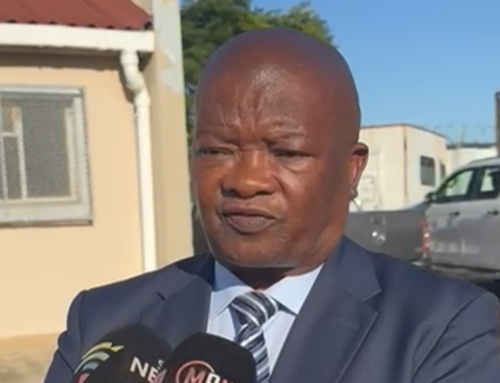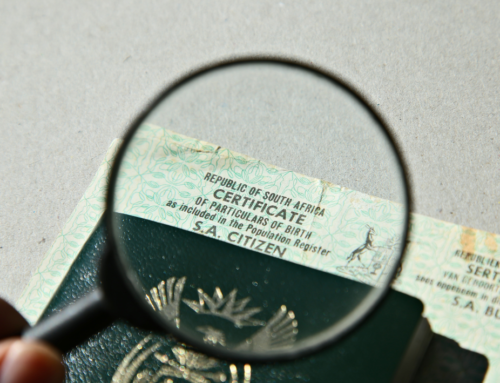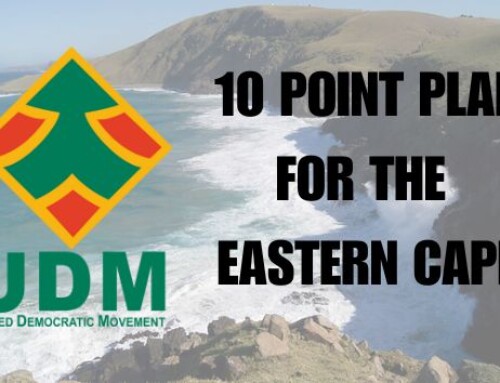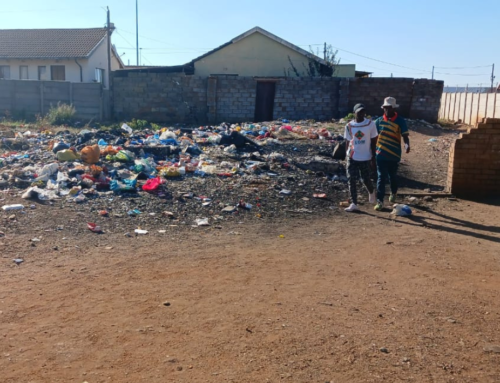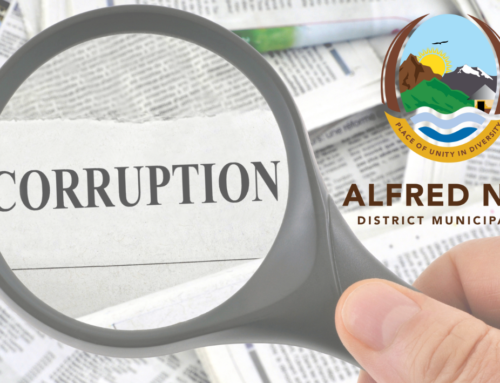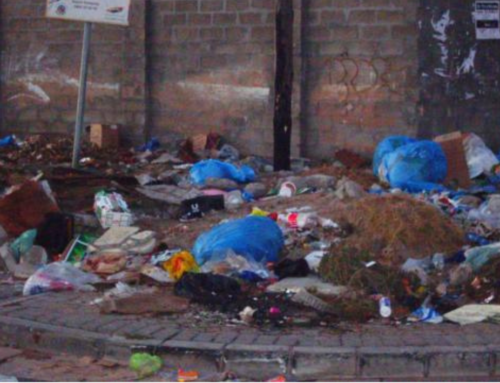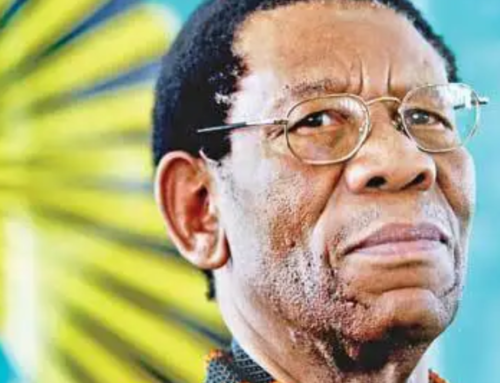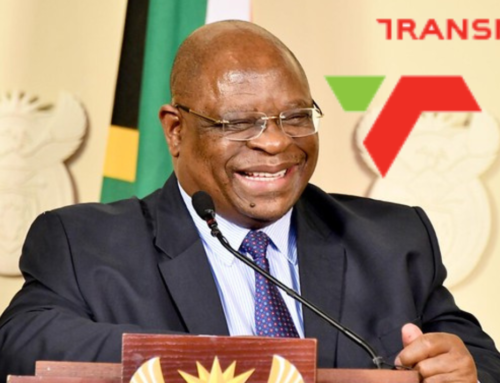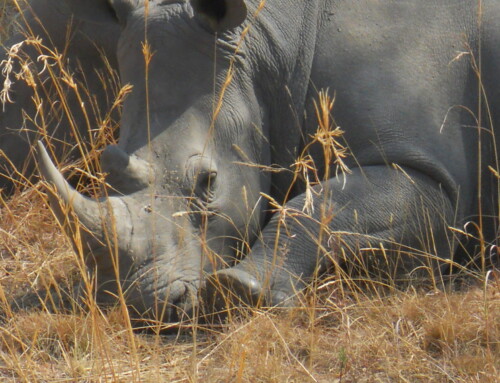Click here for PDF version of the Peace Accord (244KB)
  |
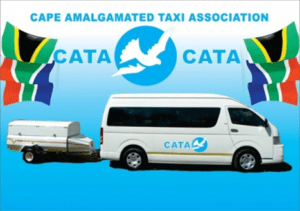  |
  |
  |
Peace Accord between Congress for Democratic Taxi Association (CODETA) and the Cape Amalgamated Taxi Association (CATA)
SUMMARY OF CONCERNS RAISED BY INDIVIDUAL ASSOCIATIONS (CATA & CODETA) AND THEIR COMMITMENT TO FINDING IMMEDIATE, MID AND LASTING SOLUTION TO THE CURRENT TAXI CONFLICT
| 1. Introduction The General Secretary of the South African Federation of Trade Unions (SAFTU), Zwelinzima Vavi and the President of the United Democratic Movement (UDM), General Bantu Holomisa, convened a meeting with Congress of Democratic Taxi Association (CODETA) leadership in Site C in Khayelitsha on Saturday the 24th of July 2021 at 10:00 and with Cape Amalgamated Taxi Association (CATA) on the same day at 14:00 in Bellville. This meeting had been convened to find immediate, medium-term, and long-term solutions to the ongoing conflict between these two taxi associations in the Western Cape. By late July, the conflict witnessed 24 deaths and 29 injuries, and the subsequent closure of routes by the Western Cape government.This document is a product of the facilitated process between the parties concerned. This document will now be sent to the Minister of Transport, Mr Fikile Mbalula, Minister of Police, Mr Bheki Cele and MEC for transport in the Western Cape, Daylin Mitchell, for the consideration and hopefully endorsement. It will be followed by the reconvening of all the parties to sign off and use the document as a working document and a guide to addressing the taxi violence in the Western Cape. |
|
| 2. The sources of the crisis from a perspective of CODETA and CATA | |
| CODETA | CATA |
| 2.1. Concerns | Concerns |
| CODETA raised the following concerns:
1. Route from Paarl to Bellville is the major cause of the conflict 2. They have been in this conflict for the past year and 8 months 3. CATA’s “A Point” from Bellville is the major problem. This means CATA has been given a monopoly to load in town while CODETA must return to their “A Points” in the townships. 4. Two associations in Paarl, Boland Association and Paarl Alliance (CODETA) have permits in Paarl for a route from Paarl to Bellville. This is where the fight started. This fight led to the killing of a number of CATA and CODETA members. 5. CODETA instructed CATA that it must not operate in Mbekweni in Paarl in response to the violence meted to the CODETA operators allegedly by CATA. 6. CATA argued that they have “A point” in Paarl and therefore must be allowed to ferry passengers from Paarl (their A Point) to their respective destinations. 7. CODETA has “A Point” from Khayelitsha to Bellville but they cannot return commuters back to Khayelitsha. 8. CODETA runs the Wynberg, Mowbray and Cape Town routes with no problem. 9. On Monday the 19th of July 2021, CATA brought all their taxis to Mbekweni to load. CODETA had to call police to remove them. After their removal from Paarl, CATA came to Bellville and fought CODETA Paarl Taxis in Bellville, especially at Karl Bremer Hospital rank. 10. CODETA decided to stop their taxis until shooting was over and they started to operate again. 11. CATA stopped their taxis as well and started shooting at CODETA taxis in the townships and everywhere. 12. CODETA parked their taxis again, and decided to halt services until a court/arbitration date which is expected on the 28th of July 2021 13. Monies have been taken by CATA taxi drivers from CODETA taxi operators as part of the general harassment of CODETA operators. 14. CODETA left Bellville Rank because of the shootings and ended up using an open space as their rank. 15. Those who used to be CATA Boland Association members have crossed the floor to join CODETA. The view held by CODETA is that the new members of CATA have no operating licenses and are prone to use of violence, as they have nothing to lose. |
CATA raised the following concerns:
1. The problem started from Mbekweni/Paarl area. 2. CATA Boland Association and Paarl Alliance used to work together as far back as 1995 3. CATA Boland used to have a route from Paarl to Nyanga and Paarl Alliance used to have a route from Paarl to Khayelitsha. Later the route changed from Mbekweni to Bellville. There used to be problems, but they were addressed with no physical fights. There were other routes that were shared among the association from Mbekweni to Paarl and Paarl surroundings. 4. Three years ago, Paarl Alliance became affiliated to CODETA and started poaching from CATA Boland Association. 5. The majority of CATA Boland Association members were defeated in this competition and were forced to surrender by joining Paarl Alliance. However, when all the CATA Boland Association members moved to Paarl Alliance, they did so with Operating Licenses that were issued while they belonged to CATA Boland Association 6. CATA believes that an Operating License is not supposed to automatically move with individuals when they decide to move to another association. 7. When CODETA recruited CATA members, they closed down CATA Boland and they are refusing any attempt for CATA Boland to revive itself in Paarl. They believe that they have defeated CATA. 8. According to CATA, a resignation letter is required, addressed to the association before a member can be allowed to resign and join another association. In the view of CATA a member who resign from the other association must lose the permit obtained while being a member of the previous association. In some cases, CATA Boland members refused to resign, and they kept their operating licenses to first see if they will be satisfied with the services of Paarl Alliance. 9. Fights erupted and three drivers from those operating from Paarl to Bellville were killed in 2018. 10. There was a relationship between Bellville Taxi Association (BELTA) and CATA Boland. 11. CATA taxis were refused permission to load from Mbekweni, and commuters were fearful of using CATA taxis because of consistent attacks from CODETA. 12. CATA started dropping in Paarl but returning empty. 13. Although CATA could no longer transport commuters from Bellville to Mbekweni in Paarl, BELTA continued to allow CATA to operate. 14. In 2020 CATA decided to come to the Bellville Taxi rank to fight. As a result, seven drivers died: three from CATA and four from CODETA 15. CODETA pulled their taxis from the rank and started a different rank when transporting commuters from Bellville to Paarl and Mbekweni. As a result, they opened transport to and from Paarl and Mbekweni. 16. CATA taxis were burned down when they went into Mbekweni. 17. They have been signing peace treaties, but once taxis start operating, fighting resumes. |
| 2.2. Role of Government | Role of Government |
| CODETA raised the following: –
1. Government had given “A Point” from the township to Bellville to CATA. Furthermore, CATA had been given “A Point” from Bellville to other towns. CODETA had only been given A Point from the townships. 2. Government had given CATA all rights in Bellville. CODETA picks up passengers from the townships, but they must be returned home by CATA. 3. CODETA believes that government is oppressing them and makes life easy for CATA. 4. Government can see what is happening, but they are doing nothing about it. 5. CODETA have a major problem with permits distribution because permits are authorised by government. They have been complaining about this for years. They have a document drafted by Mr Miselo and submitted to the government with proposals but very little if any was done to implement the recommendations. 6. In 1990, LAGUNYA and WEBSTA were fighting and what government offered as a solution was merely to build interchange ranks. 7. Black People are shot in broad daylight within sight of surveillance cameras but there are no arrests made by police. 8. There is a sense that Bellville Taxi Association controls Bellville. |
CATA raised the following: –
1. Two competing taxi associations were not supposed to be issued with licenses to operate the same route, but government had done so in this instance. 2. Government was supposed to suspend the two associations that are in conflict in Paarl, but Bellville Rank will be closed instead. 3. Government was informed when CATA Boland members started to use CODETA stickers without any agreement or any resignation letters from CATA Boland. 4. CATA requested, through appropriate structures in government, that all those who have moved from CATA to CODETA must leave their operating licenses behind. Government refused to address the problem of operating licenses, arguing that these licenses were identical. 5. CATA argued that each association is given a number of operating licenses based on supply and demand. 6. When the board was confronted, its response was that there were no resignations from individuals. Government confirmed that no operating license provided to one association can later be used to operate under another association’s name. 7. Government had made a big mistake by not regulating operating licenses in the Paarl Alliance. 8. A survey was done when permits were issued, but no survey was done when CATA Boland Association members moved over to Paarl Alliance (CODETA). 9. The municipality failed to do its work. 10. The City of Cape Town wants to reintroduce MyCity in Khayelitsha. It is working with CODETA to achieve this goal. 11. CATA proposed closure of Paarl and Mbekweni Ranks until a solution is found, as it is the only rank that is causing problems. But government is not doing that, instead it is closing other routes. 12. Government made a promise to subsidize taxi owners, but up until today there are no subsidies. 13. The Minister of Transport seeks to force associations to sign agreements rather than finding genuine lasting solutions. 14. Associations are given routes and alternative routes by the government, but the same government impounds taxis when found on alternative routes. 15. Government has failed to regulate the taxi Industry fairly and effectively. |
| 2.3. CODETA’s Suggested Way Forward | CATA’s Suggested Way Forward |
| CODETA raised the following as their Way Forward:
Generally, CODETA has some proposals for a way forward on the table but there are trust challenges due to the feeling that CATA may not honour agreements if reached. It has to be noted that, when they convene their meetings with CATA, one would believe that all these leaders are working together because there is no hostile environment in their meetings. Yet after the meetings shootings continue. CODETA proposed the following as solutions: 1. CODETA is committed to a ceasefire. 2. One suggestion is that CATA taxi drivers must not load in Paarl. They must just drop and go back to Bellville. CODETA would do the same in Bellville. 3. When taxi owners and/or taxi operators embark on violence and threaten lives of other taxi owners, taxi operators of the other associations, or taxi commuters in pursuit of their interests, the association to which they belong must be held accountable. A fine must be imposed. 4. Rebuilding unity will a solution in the long run. It will be far better to manage conflicts if all operators belonged into one association. 5. The Paarl/Mbekweni and Bellville routs are the main source of conflict. They suggested the following: 5.1. As a compromise, Paarl Alliance can leave with a situation where it will only operate with 20 taxis between Paarl and Belville and CATA Boland Association operating with 37 taxis. 5.2. Part of this compromise should mean that CATA Boland Association in Mbekweni for a period of up to three months for security reasons. This will provide space for two associations to get used operating in the same route and to familiarise with each other drivers. 5.3. All the new Taxi Owners and the Taxi Drivers must be screened, and they must have all relevant operating permits. 5.4. As part of this compromise, Paarl Alliance must feed all taxis (operating between Paarl and Bellville) with commuters from Mbekweni and surroundings. 5.5. No association should operate straight from Mbekweni to Bellville. All commuters from Mbekweni to Bellville must travel via Paarl where both associations will ferry them to Belville and other destinations. |
CATA raised the following as their Way Forward:
1. CATA agreed to a ceasefire and to find solutions through meaningful dialogue. 2. CATA proposed that government must close all ranks in Paarl and Mbekweni, but the government proceeded to close all routes. 3. There are 27 routes in Mbekweni/Paarl and CATA is prepared to compromise 26 routes for only 1 route, which is from Bellville to Mbekweni/Paarl. 4. If this compromise is not agreed, CATA request that they operate at 50/50 split with CODETA on the Mbekweni/Paarl and Bellville routes and surroundings. 5. Another suggestion is that, if taxi owners and/or taxi operators embark on violence and threaten the lives of other taxi owners and/or taxi operators of the other association, or taxi commuters, in pursuit of their interests, an association where they belong must be held responsible to a point that a fine must be imposed. 6. CATA agrees that in the long term, there must be a single association to better manage the conflicts. 7. CATA Boland Association members reside in Mbekweni/Paarl, and they have a right to operate in Mbekweni/Paarl. Therefore, we should all work together at 50/50 capacity, because we have all committed to ceasefire, which means there should be no fears of shooting at each other in Paarl and Mbekweni. 8. If Paarl Alliance wants to operate alone on the route between Paarl and Mbekweni, CATA Boland Association would also want to operate alone on the route between Paarl and Bellville. 9. For the new taxi owners to start operating, all the Operating Permits that are with the individuals who moved from CATA Boland to Paarl Alliance (CODETA) must be returned to CATA so that it distributes them to new members. 10. If all fails in this facilitated process, we should allow people to go back to their original positions until the arbitration/ court decides. The matter in arbitration/court will be finalised on the 28 July 2021. |
| 3. Areas of convergence
1. The problem started from Mbekweni in Paarl, and this remains a problem 2. As a result of the Mbekweni/Paarl problem, a number of other taxi ranks are affected and if a solution can be found for Paarl rank, all other ranks can be sorted out. 3. Individual operators from CATA Boland Association joined Paarl Alliance. 4. Government has failed to point out a clear way forward without fear or favour as to which association had breached operating terms and conditions. 5. Government had just listened to the two associations and told them to continue engaging without any recommendations that would end the impasse. 6. Both associations are committed to finding long-lasting solutions to the conflicts that always lead to loss of lives. 7. All parties are committed in finding long-lasting solutions to what confronts the only business controlled by Black people. Parties have acknowledged that this will not be resolved overnight, it is a process that requires thorough engagements. 8. It has to be noted that, government had taken a decision to deploy soldiers to deal with the current conflict between the two taxi associations. Deployment of the military is hazardous to civilians. Although SANDF deployment could improve law and order and ensure peace for our communities, taxi operators and taxi owners, it could also be a brutal intervention if the SANDF engages in armed battles. Government will always ensure that military forces are safe, drawing upon underground military intelligence, which is very strong. 9. If the current impasse continues, more working-class commuters will be injured, and some will die. This will be detrimental to all mass transit on the taxis and will result in government clamping down on the industry and providing alternative means of transit such as buses. 10. Although there are no signs of hostilities between the leadership of these two fighting associations, taxi drivers are attacking each other, and innocent lives of passengers are also being lost. 11. If the current impasse continues, taxi operators may lose community support as the current fight dramatically lowers public confidence and trust in this industry. 12. If taxi owners and/or taxi operators embark on violent means that threaten lives of other taxi owners and/or taxi operators of the other associations, or taxi commuters, in pursuit of their interests, the association to which they belong must be held accountable to a point that a fine must be imposed. 13. We must work towards amalgamation of associations into a single association. |
|
Peace Accord between Congress for Democratic Taxi Association (CODETA) and the Cape Amalgamated Taxi Association (CATA)
Noting:
- The current conflict between CODETA and CATA has led to killings that have flared up and down over many years.
- Many lives have been lost in the process of the conflict, many breadwinners have been lost and many children orphaned.
- Violence and eye for an eye leads to more violence and in the long term is not a solution to any conflict.
- Innocent lives or people that have absolutely nothing to do with the conflicts between our two associations have been lost. Scores of workers and drivers of the bus companies have been caught in the crossfire.
- Hundreds of thousands of workers face a bleak future and risk losing their jobs and their livelihood if the conflict is maintained going forward.
Believing
- At the center of the conflict between CODETA and CATA are the following factors:
- Despite efforts of the past, unity has eluded the taxi industry, leading to failure to manage conflicts and competition amongst the taxi associations and operators.
- Government has not always managed the conflicts in a fair and equitable way. The government has at times:
- Issued operating licenses to different associations operating the same route.
- Allowed taxi owners to change membership without first resigning from previous associations (According to the MEC of Transport licenses are issued to individual not to the associations).
- Allowed taxi owners to move with their operating licenses to new associations while still operating the same route which has at times led to conflicts (According to the MEC, as licenses are issued to individual nothing stops the individual with the license to move to an association of choice).
- Government has maintained and even amplified apartheid-era spatial developments, which keeps commuters in disadvantageous geographical circumstances. In addition, the government has no plan to address either growth or decline of industries, the emergence of new residential areas, new malls and urban and peri-urban development that affects the public transport system.
- Given the state’s failure, the onus for creating conditions of peace and coexistence rests squarely on the shoulders of CODETA and CATA.
- Violence, death, injuries have gone on unabated for too long! Time has now arrived for us to work for the common goal of peace.
Therefore, we resolve as follows:
- Immediate Action
- We declare a ceasefire with immediate effect. This means we shall enforce peace and coexistence between the two associations.
- Ceasefire also means we shall no longer allow our names to be used by our members, drivers, families, and supporters to commit acts of violence against each other, including our customers/passengers and or drivers of other means of transport such as busses.
- We shall work with authorities to expose those who refuse to abide by the spirit of this agreement.
- An urgent request must be made to Western Cape and National Governments to put rank closures on hold for 7 days and to allow the current SAFTU/UDM facilitated process to be exhausted. Once seven days have passed, all problematic routes must be closed until an agreement is reached. Aside from the Bellville to Mbekweni/Paarl route, the Somerset West and Mfuleni routes are also problematic. (MEC indicated that he is ready to review the decision to introduce extra ordinary measurers as soon as all indications demonstrate that this agreement is being honoured)
- Establish a Peace Task Team of 5 aside that will negotiate a supplementary agreement, so that in future every attack on CODETA or CATA will automatically mean we take responsibility, by levelling hefty fines on the associations, so that each association is obliged to punish those undermining the spirit of this agreement.
- As part of the above, considerations for example shall be given to:
- In a case where a taxi of either association is burned or damaged, the other association will pay the owner for the book value or the damage to the taxi concerned.
- In the case of attacks leading to deaths, the opposite taxi association shall bear all costs of funerals, including transportation of the body. In addition, a trust will be created for the upkeep of the deceased dependents to the tune of R500 000.
- In the case of injuries, the opposite taxi association will pay for all hospital or doctors’ costs.
- A Peace Task Team of 5 a side has been established.
- We recognise that the immediate challenge is to find a solution to the dispute involving the routes between Mbekweni and Paarl and between Paarl and Belville. We accept that most of the violence and clashes between the two associations took place in this hotspot. We have agreed to find an interim working arrangement between us. We considered three options in this regard which are as follows:
- We are considering a request made by CATA that the route between Belville and Mbekweni/Paarl be ceded to them so that they alone operate in that route. CATA is willing to withdraw from all 25 to 27 other routes operating within Paarl if this is agreed.
- If this is not acceptable to the other side, CATA propose that all of the 27 routes within Paarl and between Mbekweni/Paarl and Belville be operated on the quota basis of a 50-50 split.
- CODETA is proposing a compromise that there should be a split based on 37 taxis from CATA and 20 taxis from CODETA to operate between Belville and Paarl on condition that CODETA is allowed to operate alone in Mbekweni. CATA should not operate between Mbekweni and Paarl for security reasons at least for a period not exceeding three months.
- In the context of the above tentative package and in order to find a solution based on one of the three options or a combination of them, the facilitators agreed to:
- Approach the government at the level of the Minister of Transport, MEC of Transport in the Western Cape, Minister of Police and or even the joint operation center between SAPS, SANDF and Intelligence so that security arrangement is found to ensure safety of drivers, operators, and passengers.
- When this security arrangement is found, the facilitators will propose an option based on the combination of the above in point 8 above.
- In the light of the above, the meeting called on the government to, without compromising security, review and postpone the implementation of the “extraordinary measurers” in line with National Land Transport Act, 2009 (Act 5 of 2009). These measures will last for two months extended to cover much greater arrear than just Belville and Mbekweni/Paarl. (The MEC assured both association that the “extra ordinary measurers” will be reviewed and withdrawn as soon as conditions of peace prevail in line with the agreement)
- Both parties accept that the implementation of the extraordinary measures will have devastating and long-term ramifications for the taxi industry and will lead to dispossessions of countless number of vehicles by creditors in the banking sector.
- Joint pamphlets, posters and press briefings will be conducted by the leadership of both associations to communicate this message to the customers of the taxi industry as well as to all other role players including the government. This will help win back public confidence and trust to the taxi industry.
- Short-term solutions
- Commit to operate within the ambit of law. Where the law has been unfairly implemented to work together with the government at local, provincial, and national level to ensure that the legislation, agreements, and by-laws are implemented in a manner that promotes peace and tranquillity.
- Both taxi associations will respect and observe the current operating licenses. Where these operating licenses had led to the conflict, these will be identified, and conflicts resolved.
- Both associations will be allowed to carry passengers from and to their respective destinations so that fairness is introduced.
- Government infrastructure should be enjoyed by all passengers and all taxi associations. The current situation A Point is allocated in a city like Belville to one association is not fair. A solution must be found within the principle of operating guidelines and/or protocols.
- Longer-term solutions
- Government must avoid creating conflict by issuing operating licenses for the same route to different taxi associations.
- Government must have a clear plan for the public transport system, including how taxi associations, which transport more than 60% of the workers to work, should operate.
- Government must ensure that taxi associations are paid the Temporary Employer and Employees Relief Scheme money to compensate for Covid-19 Lockdown Regulations that the government enforced, particularly the rule that taxis carry only 7 passengers. This created a huge cost to taxi owners and drivers.
- Government must subsidise all taxi associations in the same way it is subsidising the private bus industry.
- Taxi associations will not oppose regulation of the taxi industry to introduce more professional management, higher standards for safety of passengers, predictability, and efficiency in the industry.
- Associations believe that reuniting the two associations into a single association, with clear rules on how conflicts will be resolved within the new association is a long term goal they should work for to achieve.
- The Peace Task Team established will address all the outstanding grievances of each of the current associations. This will include historic grievances where each association ended up surrendering certain routes for peace’s sake.
- Deployment of soldiers must be limited to monitoring compliance with route terms and conditions, in line with permits as issued to the taxi owners.
The MEC for transport
The MEC of Transport in the Western Cape, Daylin Mitchell, joined the meeting of the two associations on the 26 July 2021 and received a full briefing of the discussions that had taken place. He had made a commitment to review the imposition of the extraordinary measurers if and when the guns are silenced.
Conclusion
Restoring peace, rebuilding trust, and solving long-term problems is our aim. We understand we will suffer setbacks and difficulties en route. This peace agreement will require tenacity on the part of all parties including the government. Government has a primary responsibility to maintain law and order and guarantee conditions of peace for all citizens, including the taxi operators.
We reiterate that the primary responsibility to create conditions of peace in the taxi industry lies with the taxi associations themselves. The government has a responsibility to ensure that they support the relationship between taxi associations. The external facilitators can play a role, as has happened in this case, and could be invited back if there is a need in the future.
We as the facilitators have communicated this agreement to the Minister of Transport and Police and we expect their full support and cooperation with the agreement.
Signed by the President of CODETA
Signed by the President of CATA
Signed by the MEC of Transport
Signed by the Ministry of Transport




